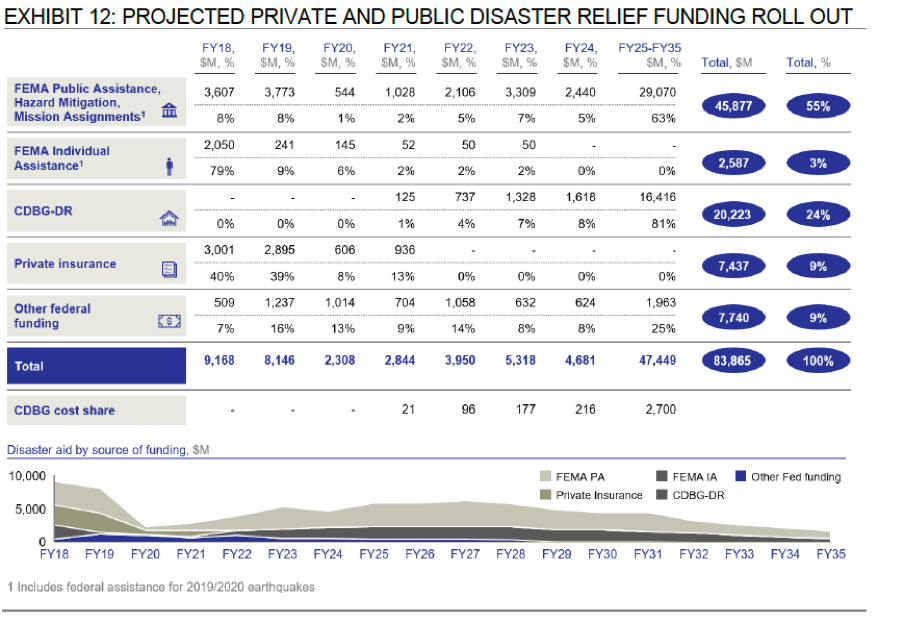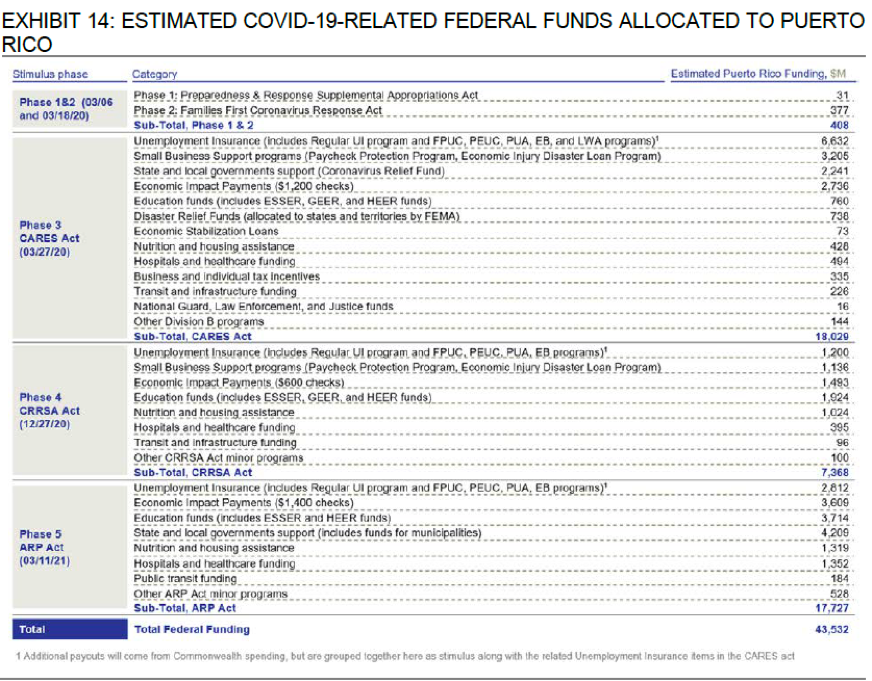The Fiscal Oversight and Management Board (“FOMB”) for Puerto Rico certified a new fiscal plan for the central government on Friday, April 23. The new Fiscal Plan, just like the others, is based on four core elements: (1) budget consolidation (spending cuts and revenue increases); (2) structural reforms; (3) debt relief; and (4) federal funding for disaster relief and COVID-19 assistance. What’s new this time is the magnitude of federal funding. According to the FOMB, Puerto Rico will be receiving approximately $110 billion in federal funds over the next ten years. This amount would exceed Puerto Rico’s artificial, transfer price-inflated GDP of approximately $100 billion.
As shown in the table below, the FOMB expects the federal government to disburse approximately $64 billion between FY2021 and FY2035, mostly from FEMA and Community Development Block Grant funds. Notice, however, that a significant amount of those funds, some $47.5 billion, are expected to be disbursed between FY2025 and 2035, so their impact on the island’s economy would be delayed and will be spread over more than a decade.

Source: FOMB, Certified Fiscal Plan for the Commonwealth of Puerto Rico, April 23, 2021
With respect to COVID-19 relief funding, the FOMB estimates that Congress has allocated $43.5 billion for Puerto Rico since March 2020. As shown in the table below, most of that funding comes from the CARES Act ($18 billion) and the American Rescue Plan ($17 billion).

Source: FOMB, Certified Fiscal Plan for the Commonwealth of Puerto Rico, April 23, 2021
The FOMB seems to be betting that the positive economic impact of this spending will offset any negative effects related to cutting government spending and raising revenues. In theory, this makes sense. In practice, however, it entails executing a difficult policy minuet. While budget consolidation measures are under Puerto Rico’s control, the disbursement of federal funds is not. The final impact on the local economy will also depend on the Commonwealth’s ability to comply with federal statutory requirements; Puerto Rico’s execution and management capabilities, which have been curtailed by years of austerity, the politicization of procurement processes, and outright corruption; and the amount of funding that is siphoned-off by non-local firms and enterprises.
Perhaps more important, the FOMB states in the Fiscal Plan that any economic stimulus generated by this non-recurrent expenditure will be limited and temporary. It is important to highlight the short-term duration of this stimulus to avoid falling into an undue state of complacency that benefits no one. To permanently increase economic growth, it will be necessary to implement structural reforms and a well-thought-out industrial policy. The Fiscal Plan does include some structural reforms that may or may not yield the growth the FOMB expects. The industrial policy part, however, remains for Puerto Rico to develop.

